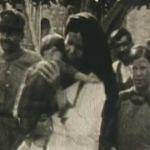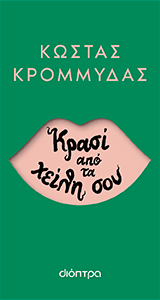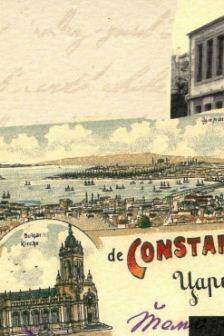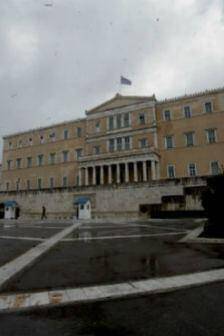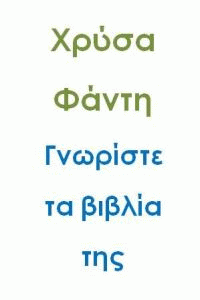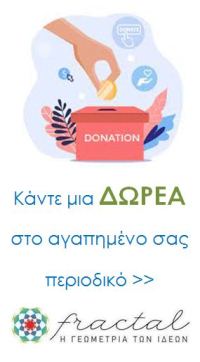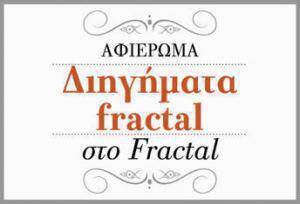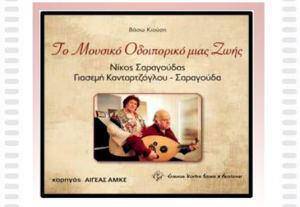Γιατί το ισλαμικό κράτος καταστρέφει την ιστορική κληρονομιά του Ιράκ; (αγγλικό κείμενο)
Πηγή: opendemocracy.net
he Islamist organisation’s wanton annihilation of Iraq’s history is a shock ploy designed to recruit soldiers and boost morale in the face of military threat.
Gail Orenstein/Demotix. All rights reserved.
In late February, Islamic State (IS) destroyed ancient artefacts in Mosul Museum and bulldozed the ancient city of Nimrud in Iraq. It was a sinister attempt to draw a parallel between itself and the Prophet Muhammad. As Iraqi forces—backed by Shia militias, Sunni tribes, and Kurdish fighters—try to drive IS out of Tikrit and Mosul, the group is trying to attract recruits, bolster waning morale, and detract from the weakening socioeconomic situation.
Iraqi forces and Kurdish fighters have blockaded key routes to the city, making it difficult for the group “to transfer goods, petrol and military equipment.” Life in Mosul has become very hard with rising commodity prices and fuel, food, and water shortages. IS has therefore found it necessary to put forth a narrative that emphasises the importance of its mission.
Fighting a war against stronger opponent(s) requires successful propaganda. As American jihadist Omar Hammami, former head of the Somali Islamist militant group al-Shabab, pointed out, “The war of narratives has become even more important than the war of navies, napalm, and knives.”
Narratives conjure up collective memories of the past. The majority of Muslims are familiar with the story about Prophet Muhammad’s shattering of idols in Mecca. According to Sahih al-Bukhari, a widely respected compiler of hadiths, the Prophet Muhammad, upon entering Mecca, attacked “three hundred and sixty idols around the Kaa’ba.” He, then, recited: “Truth has come and falsehood has vanished.”
This event is central to Islam as it emphasises tawhid (monotheism or the oneness of Allah), as opposed to shirk (polytheism), which is considered a grave sin. Recently, Islamic State exploited this deeply ingrained narrative, breaking artefacts, incinerating books and manuscripts, and bulldozing an ancient city as part of a campaign to situate itself as torchbearer of Mohammad’s holy mission.
Islamic State, through contrived political acts, seeks to achieve maximum global “shock value.” In a seminal study on insurgent propaganda, Neville Bolt referred to this strategy as the Propaganda of the Deed (POTD). POTD is a well-planned “act of political violence,” which aims to create a shocking media event “capable of energising populations to bring about state revolution or social transformation.”
The act may be geared towards people, institutions, inanimate objects or cultural symbols like statues and artefacts. This tactic is not new or unique to IS. Many countries and groups have used and continue to use POTD. Flag and effigy burnings, death chants, and vandalising places of worship are all political acts of violence aimed at realising the utmost shock value.
This “media event” is most effective when it has viewers who are awed, disgusted, fascinated, or outraged. Global outrage leads to international condemnation. It may also provoke the group’s enemies to react forcefully, which in turn helps legitimise its agenda.
The international community, certainly, reacted as IS had hoped. Irina Bokova, Director General of UNESCO, denounced the demolition of the artefacts as the “tragic destruction” of the “heritage of all mankind” and urged the UN Security Council to take action to protect the world’s cultural heritage. Similarly, after IS bulldozed Nimrud, the Iraqi government censured it as a breach of “the will of the world and the feelings of humanity.” Irina Bokova, claimed that it constituted “a war crime.”
As military tensions escalate, IS has begun to employ a double-edged propaganda tactic. First, the group seeks, through destruction of pre-Islamic artefacts, to depict itself as following the path of Prophet Muhammad. Second, it wants to shock and awe the world—countries, international institutions, and NGOs—into taking harsh action against it.
These schemes both help IS maximise its legitimacy and attract recruits. Its recent actions show that it is willing to malign the values of Islam and draw dubious comparisons to preserve its so-called caliphate.






